Anni et Josef AlbersL'art et la vie
From to
From 10 September 2021 to 9 January 2022 the Musée d'Art Moderne de Paris is devoting a unique exhibition to Anni and Josef Albers: more than 350 works – paintings, photographs, furniture, drawings, textiles – indicative of their artistic development.
In addition to its comprehensive presentation of their respective oeuvres, this is the first exhibition in France dedicated to the two artists as a couple: to the intimate, empathetic bond that underpinned a lifetime of mutual support and encouragement and an ongoing dialogue founded on shared respect. Not only did they create an oeuvre now considered the basis of modernism, they also passed on their educative values to a whole new generation of artists.
Anni Albers (born Annelise Fleischmann, 1899–1994) and Josef Albers (1888–1976) met in 1922 at the Bauhaus and married three years later. From the outset, they shared the conviction that art could profoundly transform our world and should be at the very heart of human existence: "We learn courage from art work. We have to go where no one was before us." (Anni Albers)
From the outset the pair made art and its function the core of their thinking. Not only did they insist on a revaluation of crafts and on the benefits of mass production (Bauhaus) as tools for the democratisation of art, they were also convinced that creation was essential to each person's education. As both artists and teachers, they constantly demonstrated the immeasurable impact of artistic activity on self-realisation and, more broadly, on relationships with others. Guided by these values, they sought to lead their students to greater intellectual independence and an awareness of the subjectivity of perception. As they saw it, teaching is not mere transmission of theory already consigned to books; on the contrary, it consists in constantly raising new questionings, firstly through close observation of the visual and tactile world around us, then via the creative discoveries that come from hands-on experiments withwhatevermaterials are available, regardless of their aesthetic value. "Learn to see and to feel life; that is, cultivate imagination, because there are still marvels in the world, because life is a mystery and always will be. But be aware of it." (Josef Albers)
The exhibition opens with two emblematic works by each artist, illustrating from the outset, like a prologue, the formal and spiritual values that link the couple. This is followed, in chronological order, by the different stages of their lives. The first section brings together their rich and varied output from the Bauhaus, from 1920 to 1933. The couple's departure for the United States in 1933 marks the beginning of the second section, dedicated to the works produced at Black Mountain College. Two other highlights are a selection of Anni's Pictorial Weavings and Josef's Homages to the Square. The exhibition closes with a section devoted to Anni's graphic work, which she began with Josef in the 1960s and continued until the end of her life.
A room specifically dedicated to their respective roles as teachers allows visitors to step into the shoes of the students and follow a "live" lesson, thanks to some remarkable film archives. A considerable quantity of documentary material – photographs, letters, notebooks, postcards, etc – assembled with the help of the Josef and Anni Albers Foundation, also provides a context for the work of the two artists.
The exhibition has been organised in close collaboration with the Josef and Anni Albers Foundation in Bethany, Connecticut.
It will also be shown at the IVAM (Instituto Valenciano de Arte Moderno) in Valencia, Spain, from 15 February to 20 June 2022.
A catalog is published by Paris Musées (272 pages, 45 €).
#AnniJosefAlbers
Curator
Julia Garimorth, assisted by Sylvie Moreau-Soteras
Advisory committee
Nicholas Fox Weber, director of the Josef and Anni Albers Foundation, Bethany, Connecticut
Heinz Liesbrock, director of the Josef Albers Museum Quadrat, Bottrop, Germany
With the support of

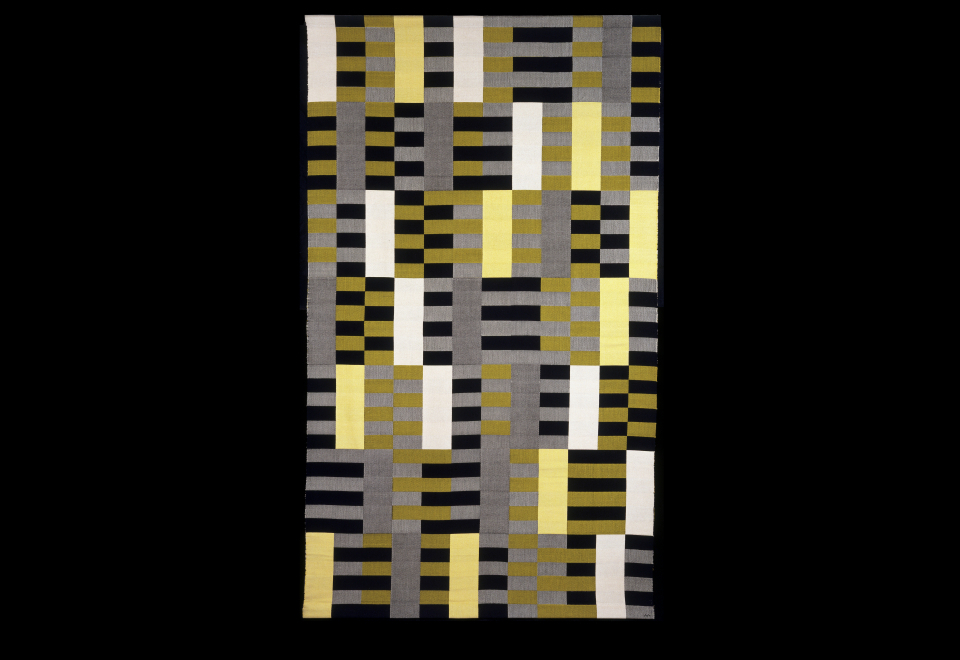
Black White Yellow, 1926 / 1967
Soie tissée, rayonne et lin
Victoria and Albert Museum, Londres
© 2021 The Josef and Anni Albers Foundation/ArtistsRights Society (ARS), New York/ADAGP, Paris, 2021
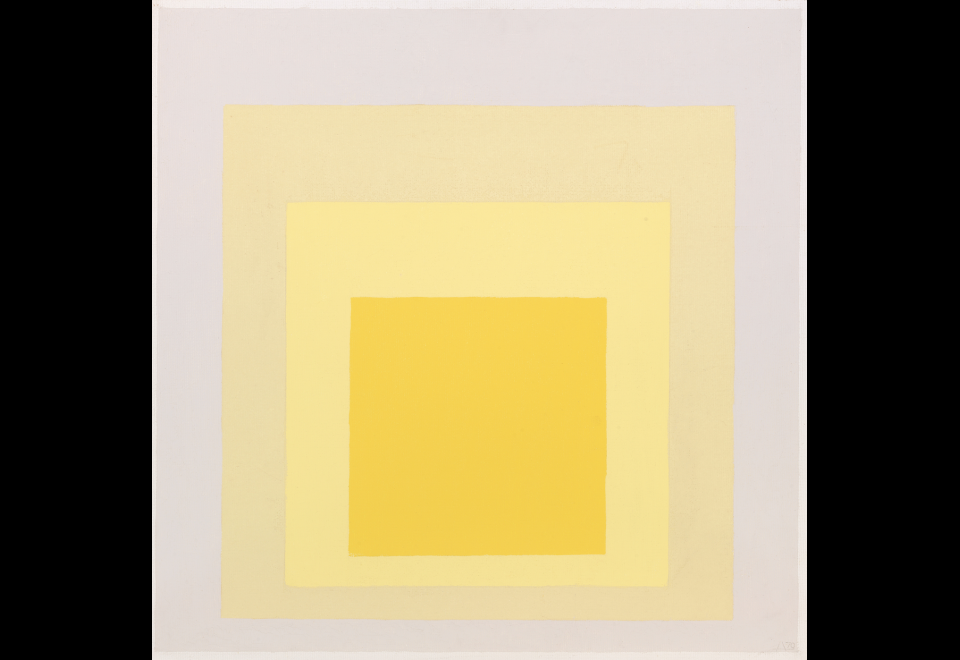
Study for Homage to the Square: Yes-Also, 1970
Huile sur Masonite
Collection particulière
© 2021 The Josef and Anni Albers Foundation/Artists Rights Society (ARS), New York/ADAGP, Paris, 2021
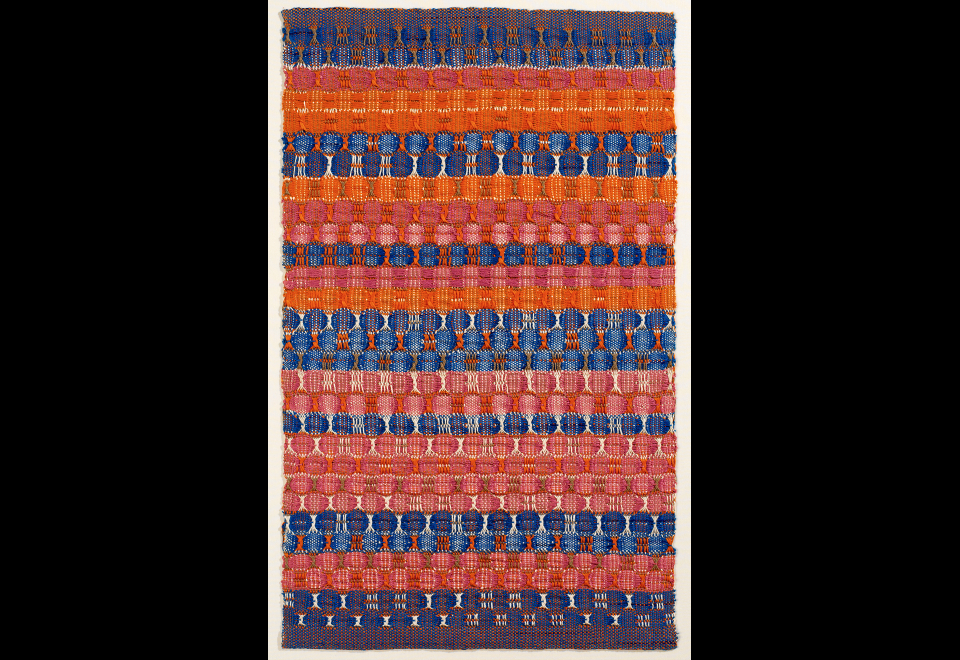
Red and Blue Layers, 1954
Coton
The Josef and Anni Albers Foundation
© 2021 The Josef and Anni Albers Foundation/Artists Rights Society (ARS), New York/ADAGP, Paris, 2021
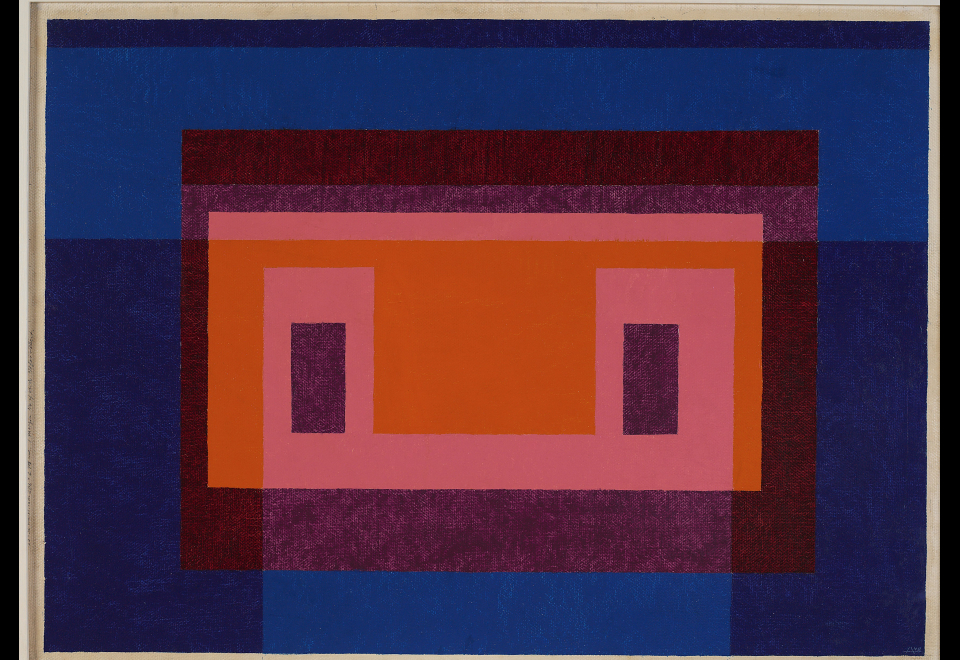
4 Central Warm Colors Surrounded by 2 Blues, 1948
Huile sur Masonite
Josef Albers Museum Quadrat Bottrop
© 2021 The Josef and Anni Albers Foundation/ArtistsRights Society (ARS), New York/ADAGP, Paris, 2021
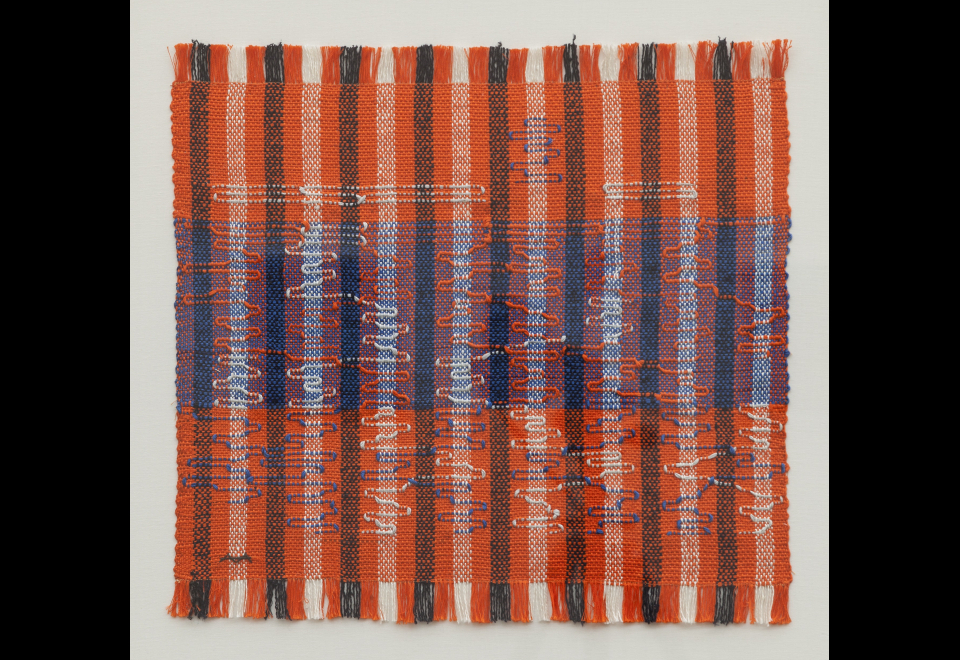
Intersecting, 1962
Coton et rayon
Josef Albers Museum Quadrat, Bottrop
© 2021 The Josef and Anni Albers Foundation/Artists Rights Society (ARS), New York/ADAGP, Paris, 2021
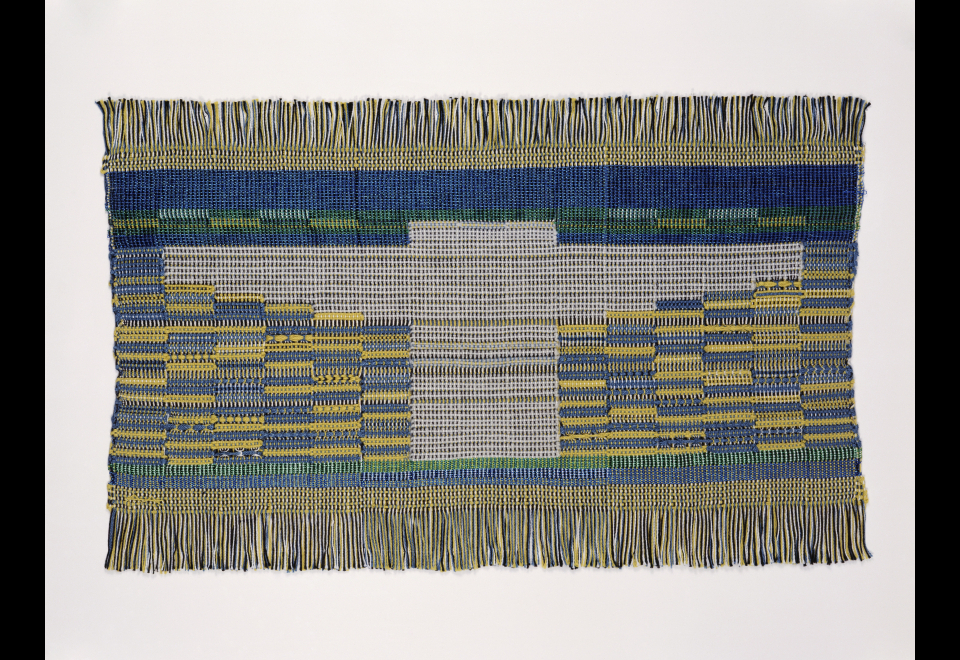
Sheep May Safely Graze, 1959
Coton et fibres synthétiques
Museum of Arts and Design, New-York
© 2021 The Josef and Anni Albers Foundation/Artists Rights Society (ARS), New York/ADAGP, Paris, 2021
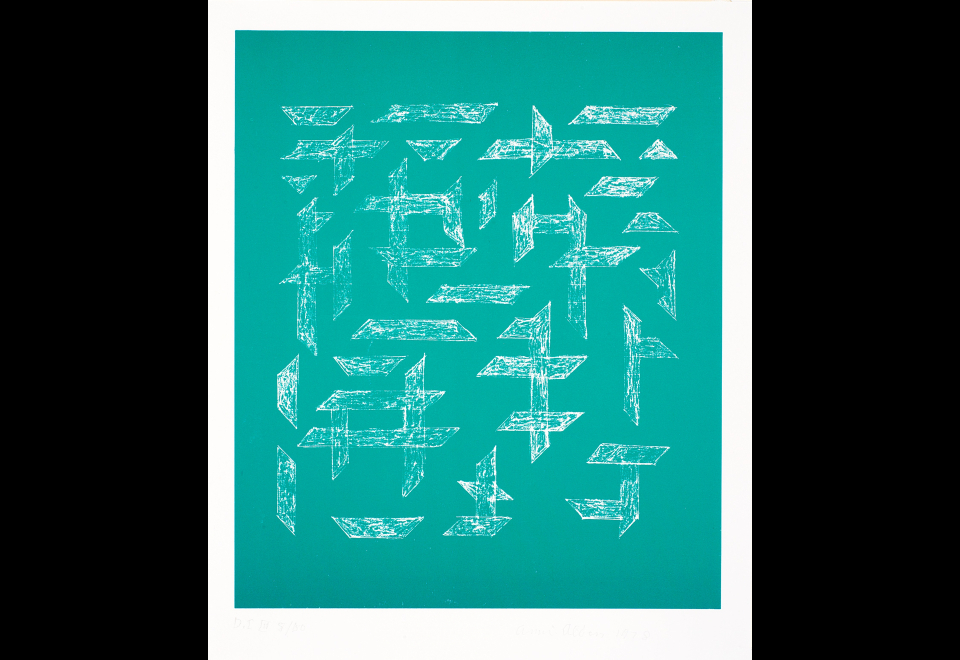
Double Impression III, 1978
Impression offset
The Josef and Anni Albers Foundation
© 2021 The Josef and Anni Albers Foundation/Artists Rights Society (ARS), New York/ADAGP, Paris, 2021
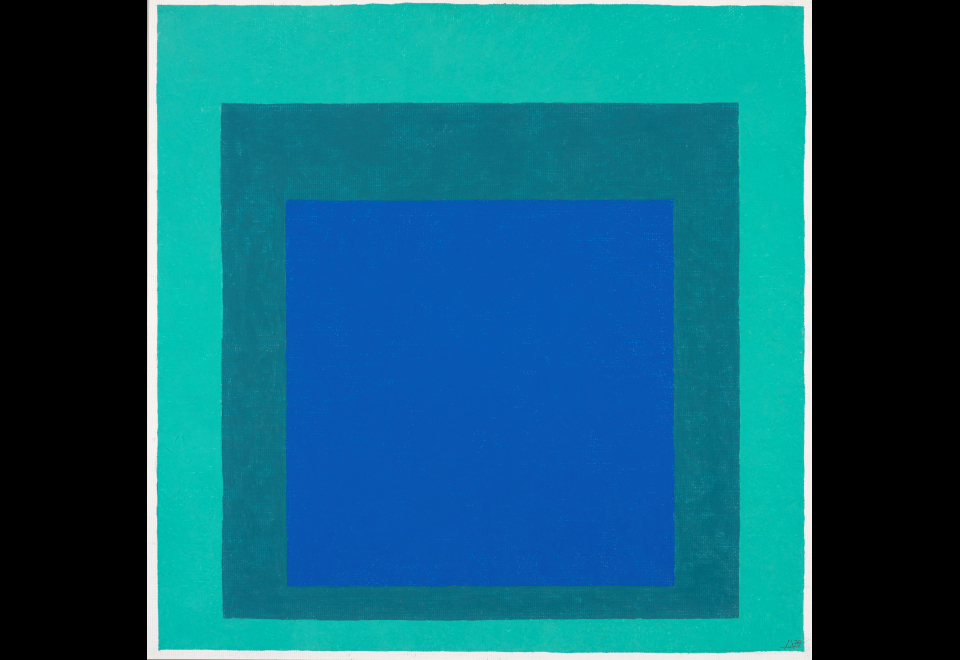
Homage to the Square, 1976
Huile sur Masonite
The Josef and Anni Albers Foundation
© 2021 The Josef and Anni Albers Foundation/Artists Rights Society (ARS), New York/ADAGP, Paris, 2021
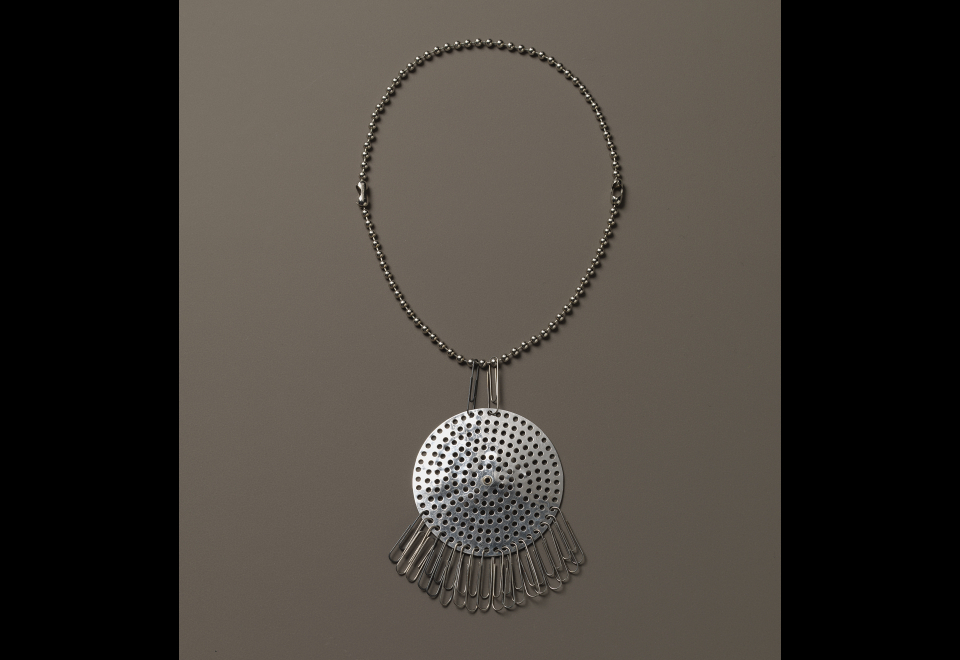
Collier, around 1940
Bonde d’évier, trombones, chaîne
The Josef and Anni Albers Foundation
© 2021 The Josef and Anni Albers Foundation/Artists Rights Society (ARS), New York/ADAGP, Paris, 2021
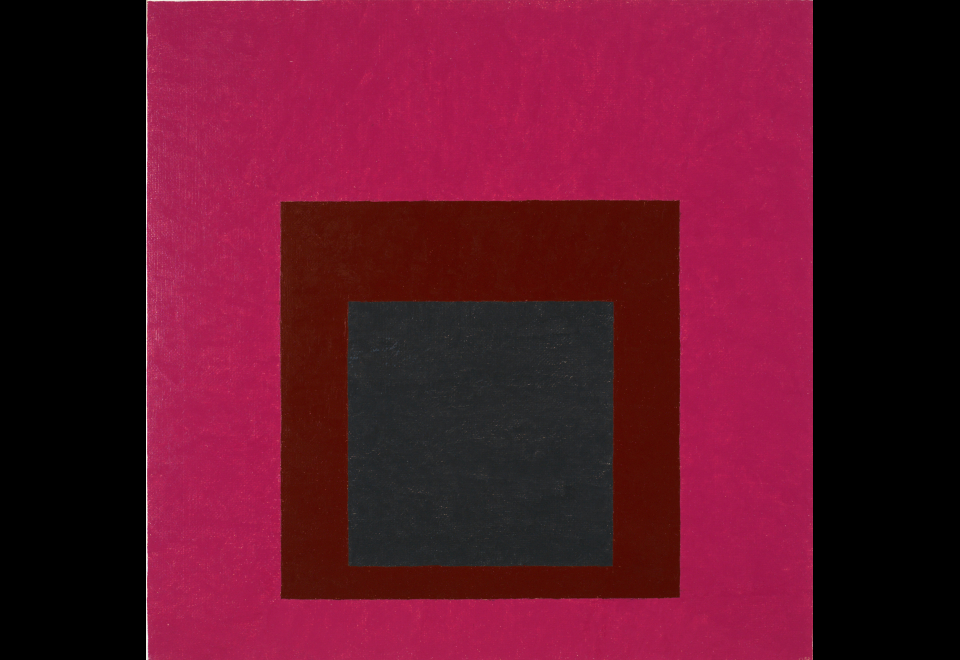
Homage to the Square: Guarded,1952
Huile sur Masonite
The Josef and Anni Albers Foundation
© 2021 The Josef and Anni Albers Foundation/ArtistsRights Society (ARS), New York/ADAGP, Paris 2021
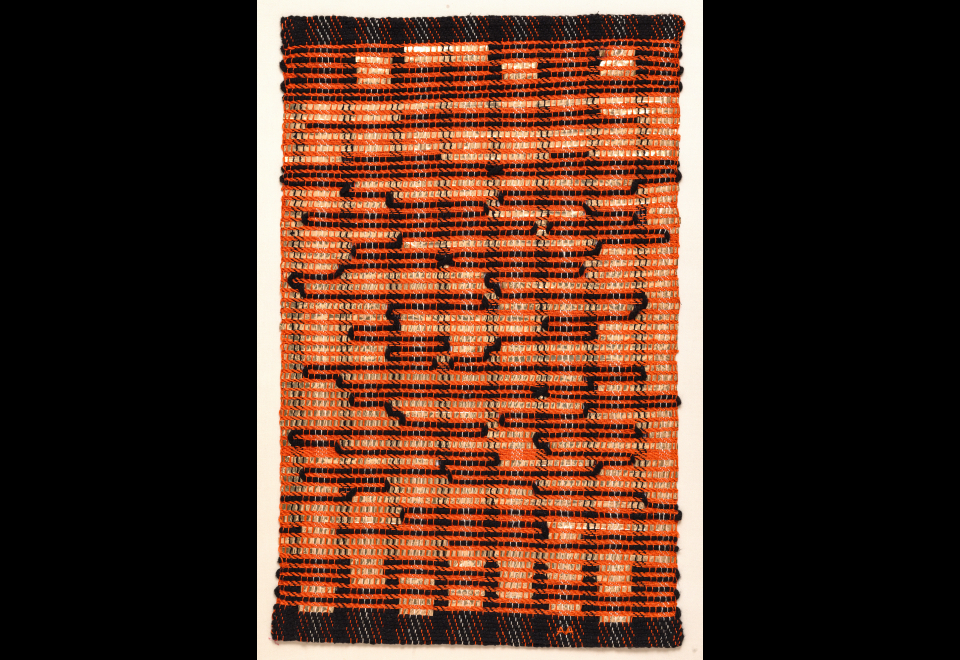
From the East, 1963
Coton, plastique
The Solomon R. Guggenheim Foundation New York Gift
The Josef and Anni Albers Foundation in honor of Philip Rylands for his commitment to the Peggy Collection
© 2021 The Josef and Anni Albers Foundation/Artists Rights Society (ARS), New York/ADAGP, Paris, 2021
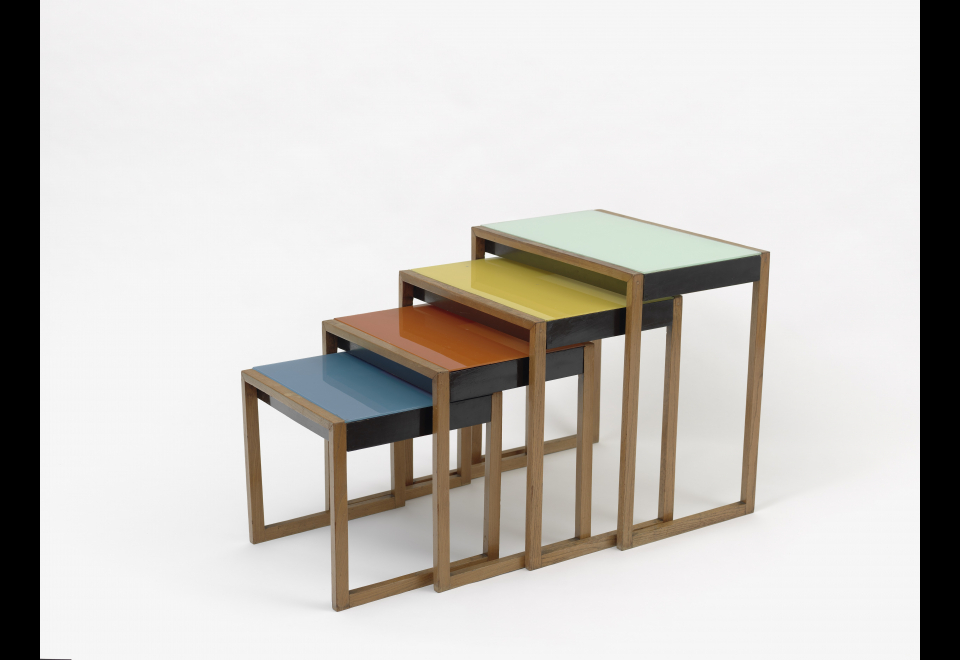
Ensemble de quatre tables gigognes, around 1927
Placage en frêne, laque noire, verre peint
The Josef and Anni Albers Foundation
© 2021 The Josef and Anni Albers Foundation/Artists Rights Society (ARS), New York/ADAGP, Paris, 2021
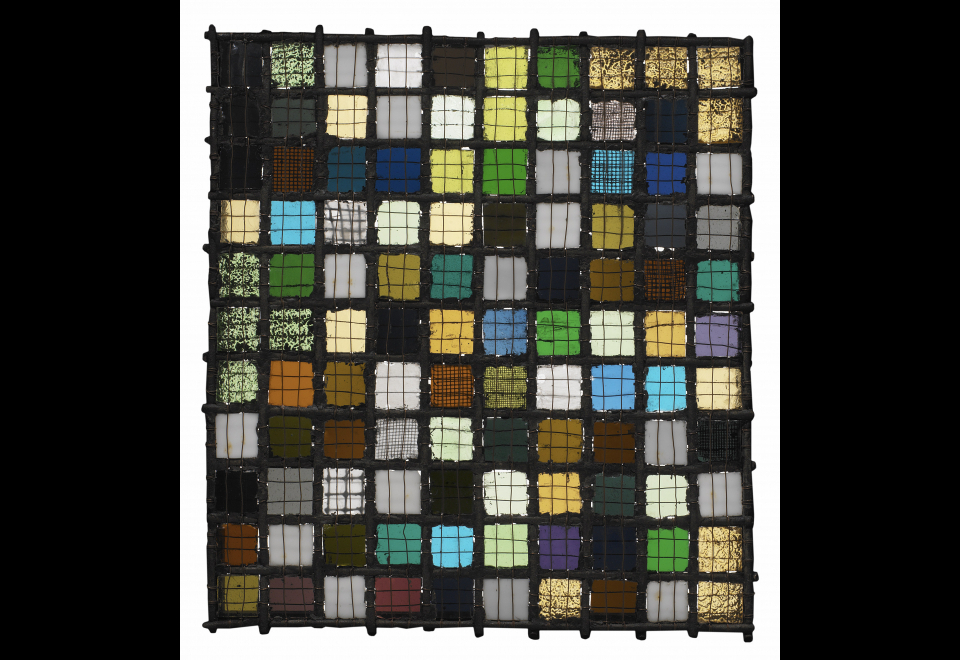
Gitterbild, around 1921
Verre, métal, fil de cuivre
The Josef and Anni Albers Foundation
© 2021 The Josef and Anni Albers Foundation/ArtistsRights Society (ARS), New York/ADAGP, Paris, 2021
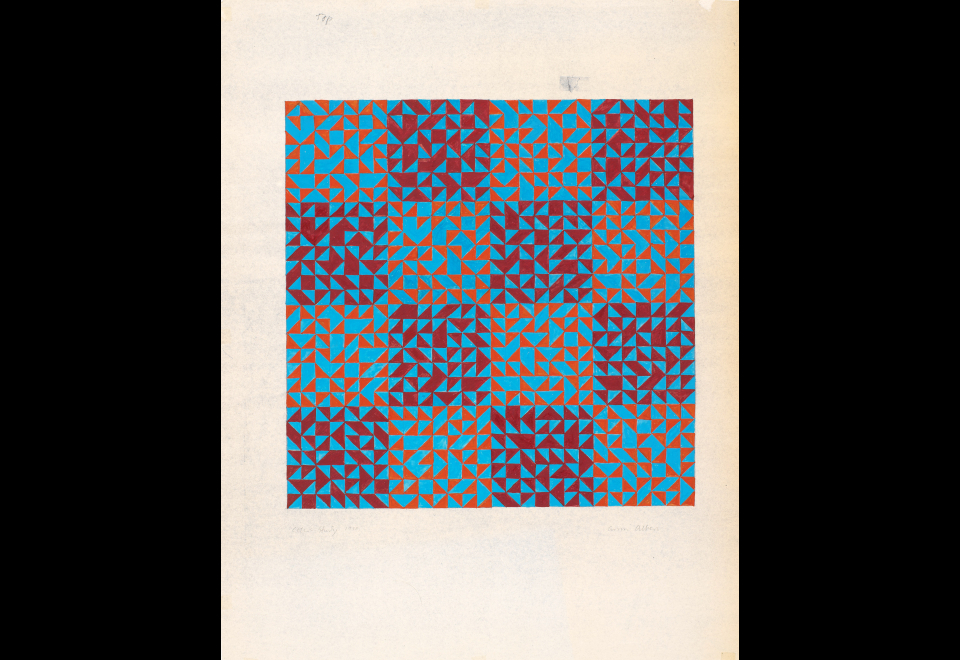
Color Study, 1970
Gouache sur papier diazotype
The Josef and Anni Albers Foundation
© 2021 The Josef and Anni Albers Foundation/Artists Rights Society (ARS), New York/ADAGP, Paris, 2021
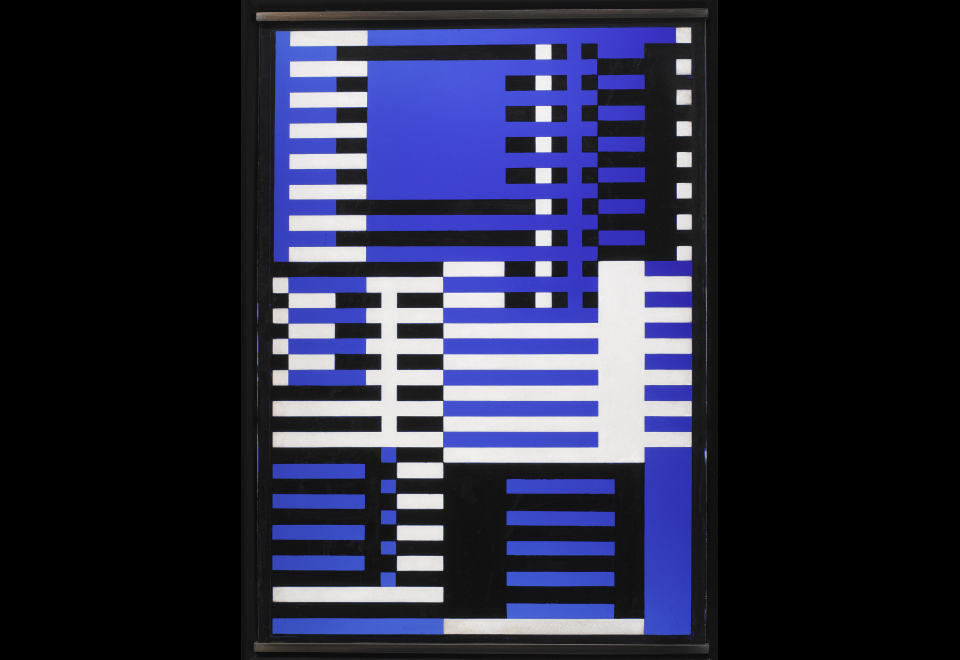
Aufwärts (Upward), around 1926
Verre plaqué, sablé, peinture noire
The Josef and Anni Albers Foundation
© 2021 The Josef and Anni Albers Foundation/Artists Rights Society (ARS), New York/ADAGP, Paris, 2021
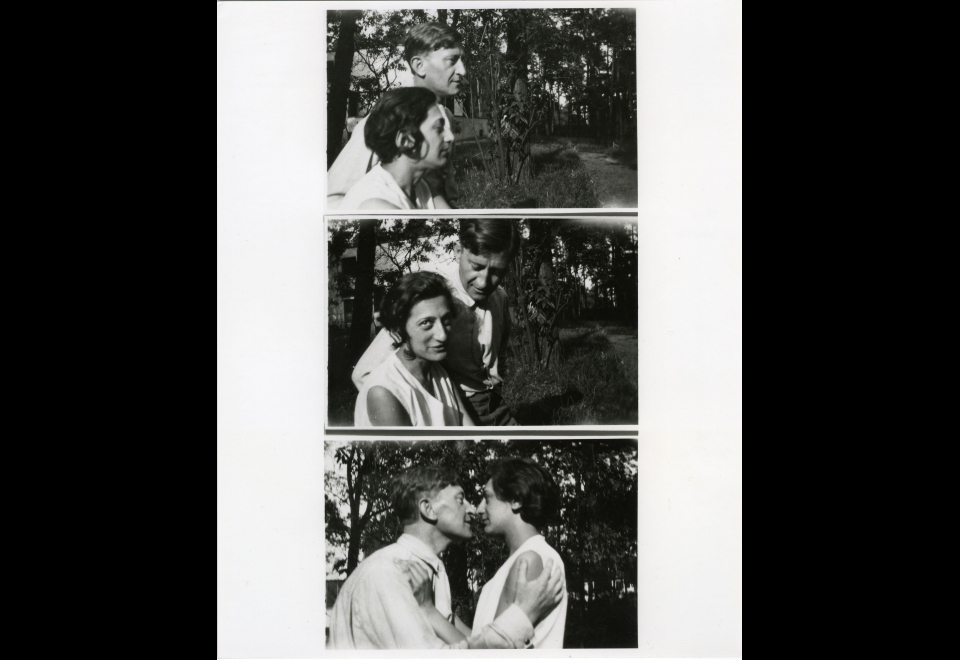
Dessau, around 1925
The Josef and Anni Albers Foundation

